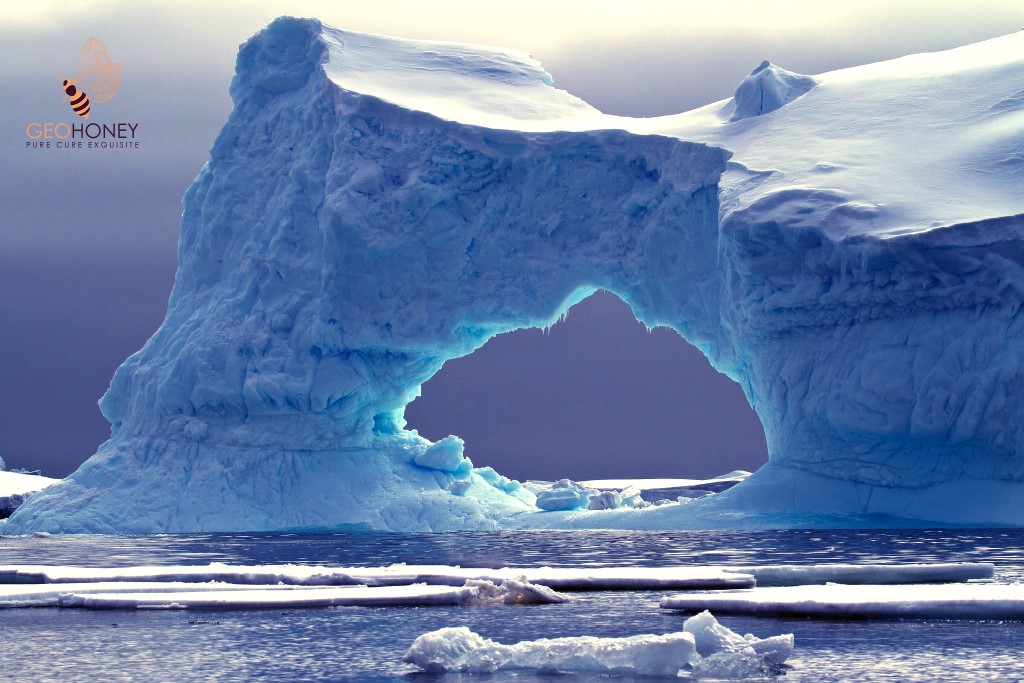- Tokyo: 10:27
- Singapore: 09:27
- Dubai: 05:27
- London: 01:27
- New York: 20:27
Slowing Ocean Currents Driven by Melting Antarctic Ice Serious Climate Consequences

According to new research, a significant worldwide deep ocean current has slowed by nearly 30% since the 1990s as a result of melting Antarctic ice, which might have serious ramifications for Earth's climate patterns and sea levels.
The worldwide circulation system, often known as the Southern Ocean overturning circulation, influences the Earth's climate, including rainfall and warming patterns. It also determines how much heat and carbon dioxide are stored in the oceans. Scientists worry that its slowing might have far-reaching consequences, including rising sea levels, disrupting weather patterns, and depriving marine ecosystems of critical nutrients.
"Changes in the overturning circulation are a big deal," said Dr Steve Rintoul, an oceanographer and Southern Ocean expert at the Australian government's Commonwealth Scientific and Industrial Research Organisation (CSIRO). "It's a concern because it affects so many aspects of the Earth, such as climate, sea level, and marine life."
The discovery comes months after Rintoul was involved in calculations that anticipated a 40% reduction in circulation by 2050. "The model projections of rapid change in deep ocean circulation in response to melting Antarctic ice may have been conservative, if anything," Rintoul added. "We're already seeing changes in the ocean that were not expected to happen for several decades."
The overturning circulation is caused by cold, dense waters that drop deep off Antarctica's continental shelf and spread to ocean basins across the world. It transports oxygen to the deep sea and returns nutrients to the surface. "What's driven the slowing is the fact that that dense shelf water isn't as dense as it used to be because it's not as salty as it used to be," Rintoul explained.
The researchers discovered that melting Antarctic glacial ice has resulted in more freshwater, boosting buoyancy. The researchers focused on changes in overturning circulation in the Australian Antarctic basin, but they believe a "circumpolar slowdown" is occurring. "The Australian Antarctic basin is the best ventilated of all deep basins in terms of getting more... oxygen-rich water to the bottom," Rintoul added. "The signal in that basin could provide an early warning of changes that could occur around Antarctica."
Dr Ariaan Purich of Monash University, who was not involved in the study, stated that the Australian Antarctic basin was downstream of the region in Antarctica experiencing the most ice shelf melt and loss of land ice. "In that sense, it makes it an important region to study in order to see how these meltwater impacts on ocean circulation." Purich called the work significant because it provided observational evidence for a slowing of large-scale ocean overturning caused by the melting Antarctic ice sheet.
"We're now seeing a lot of evidence that this meltwater isn't just rising sea levels - it's affecting the climate system in a variety of ways," Purich added. "This is quite upsetting. These are significant changes in Antarctica that may have an impact on our global climate." The study discovered a net slowdown in circulation of 0.8 sverdrups each decade between 1994 and 2017. A sverdrup is a flow rate of one million cubic metres per second.
The researchers discovered a brief rise in the overturning circulation as a result of increasing sea ice accumulation between 2009 and 2017. "That was enough to compensate for the melt from glacial melt for a few years," Rintoul explained.
"We expect that while there will be ups and downs in sea ice formation, the overall trend is that Antarctica is losing more ice, melting more, and that this overturning circulation will gradually slow down." "Unless we act quickly, we will commit ourselves to changes that we would prefer to avoid," he added. "We must act to reduce emissions, and we must act as quickly as possible."
The study was published in the journal Nature Climate Change by Kathryn Gunn of the CSIRO and the University of Southampton.
Source: theguardian.com



